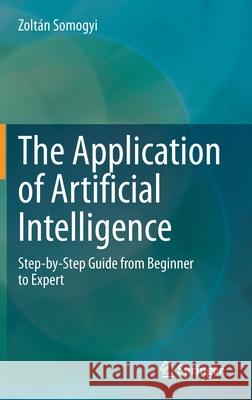The Application of Artificial Intelligence: Step-By-Step Guide from Beginner to Expert » książka
topmenu
The Application of Artificial Intelligence: Step-By-Step Guide from Beginner to Expert
ISBN-13: 9783030600310 / Angielski / Twarda / 2021 / 431 str.
The Application of Artificial Intelligence: Step-By-Step Guide from Beginner to Expert
ISBN-13: 9783030600310 / Angielski / Twarda / 2021 / 431 str.
cena 441,75
(netto: 420,71 VAT: 5%)
Najniższa cena z 30 dni: 424,07
(netto: 420,71 VAT: 5%)
Najniższa cena z 30 dni: 424,07
Termin realizacji zamówienia:
ok. 22 dni roboczych.
ok. 22 dni roboczych.
Darmowa dostawa!
Kategorie:
Kategorie BISAC:
Wydawca:
Springer
Język:
Angielski
ISBN-13:
9783030600310
Rok wydania:
2021
Wydanie:
2021
Ilość stron:
431
Waga:
0.82 kg
Wymiary:
23.39 x 15.6 x 2.54
Oprawa:
Twarda
Wolumenów:
01
Dodatkowe informacje:
Wydanie ilustrowane











